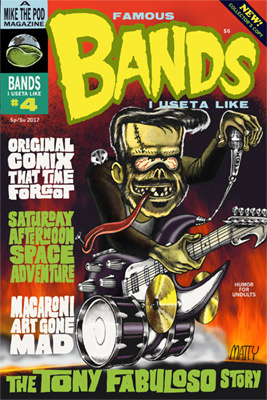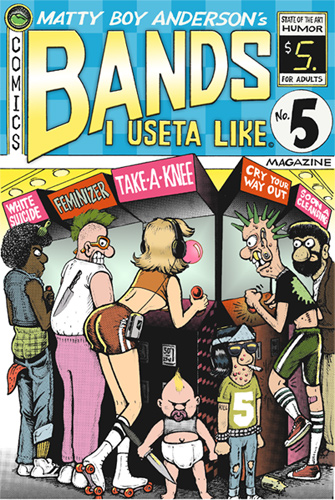
Some say nostalgia is a trap; I believe, like most things in life, nostalgia is best enjoyed in moderation. Look around this site, clearly nostalgia is my bread and butter, admittedly in a satirical sense. But the negative aspects of nostalgia are like those of a nuclear reactor; when it’s bad, it’s bad.
One of the worst things about nostalgia is that it’s transitory, almost fleeting. This is because it’s tethered to a specific generation, based upon a common experience most of them shared as children during a specific period of time. Once that generation dies off, the emotional connections they had to the world die with them.
For example; someone who witnessed the Challenger explosion in 1986 will have a much greater emotional attachment to it than someone reading about it in 2022. Same goes for September 11, 2001. It’s impossible to make someone who wasn’t born yet experience the emotions brought on simply by being alive on that day. There exists no way to successfully communicate that sort of thing at its original intensity.
This brings me to what I like to call the Super Mario Paradox.
You’ve probably noticed by now that every major movie studio is crapping out duds based on established franchises. It’s easy to blame the over-infusion of woke agenda bullshit, but the cold hard facts are that the people who produce these movies (most of which come from Disney) will never, no matter how hard they try, figure out why they keep embarrassing themselves before the viewing public. They’re so panicked at this point of losing their status, that they’ve resorted to insulting their own customers, while inventing too many excuses for their own incompetence to list here.
To emphasize my point about the Paradox, I’m going to try a little live test here. I bet if I go look, there’s a “Super Mario Bros.” movie in production. Give me a second here-
Dude that took me under thirty seconds, and twenty-nine of those seconds were spent rolling on the floor laughing hysterically. Holy SHIT. Nothing could have possibly illustrated my point better, and it was literally the first result for “super mario bros movie“!!!
Look, I’m trying to collect myself here, but look at that cast!!! I’m not even gonna bother telling you who voices whom; do you think any of those people are going to sound any different than they’ve ever sounded in anything else?!? How could this be anything but a hilariously steaming pile of shit???
Okay. Deep breaths. I’m pretty sure I can finally explain this fucking Paradox without dying laughing like a Joker victim. (See? A nostalgic reference that most people can understand.)
As we all know, bringing Super Mario to the silver screen has never resulted in anything other than chagrin. It’s arguable that the high watermark of Mario portrayals was Captain Lou Albano, on the old TV show. The guy who played Luigi may have actually been some plumber named Luigi, so authentic was he in the role. As for the 1993 movie, for some inexplicable reason, Dennis Hopper (Flashback, Space Truckers) was cast as King Koopa. I’ve had codeine-induced hallucinations that made more sense than that film.
The production of a movie requires a script, unless you prefer to make things unnecessarily difficult. A script requires a story. A story, in general, requires a beginning, a middle, and an end.
So, for the 1993 Super Mario Bros. movie, some poor bastard whose name I won’t bother to look up had to sit at a typewriter and flesh out some manner of interesting story involving characters whose only known motivations are “kick turtle shells” and “jump barrels”.
And this time, there was some poor bastard who actually wanted to do that.
I’m sure that when Untitled Mario is released, whatever it’s ultimately titled, it will be lavishly and expensively computer-animated, with lots of ironic, self-aware jokes on the behalf of the characters, and plenty of girl-power from “Princess Peach”. I’m sure lots of kids, as well as autistic adults, will pay to see it in a theater, regardless of its quality. I’m sure it’ll gross over a billion dollars.
The Super Mario Paradox is the fact that the ones who care the most about Super Mario won’t give even a single fuck, whether they realize why or not. The ones who made Super Mario a highly-profitable property won’t even give a fuck.
How can I be so sure? Tell me how much you care about the following subjects:
- Mario’s backstory/origin
- Luigi’s backstory/origin
- The complex daily life of Italian plumber stereotypes
- What Mario and Luigi’s last name is
If any of those preternaturally boring things intrigue you, you are not part of the generation that has the strongest emotional connection to Super Mario. You came either before, or after. We’re used to dealing with the ones who came before, because like the producers of Super Mario movies, they didn’t really get what we saw in the franchise either.
Allow me to demonstrate. This next slide will evoke an intense emotional reaction within many readers of this article. Merely looking at this picture will cause certain readers to hear specific music, and even recall muscle memory in their hands.
This is the Super Mario Paradox. Those who feel nostalgic for Super Mario do so because of how it felt to play the game when it was new. How it felt to make the characters jump, run, and move, and to get really good at a video game, even win it, using a controller that no one cared was uncomfortable to use and basically anti-ergonomic. Every kid wanted to get their sticky little hands on one; they were coveted. Desired.
The strongest emotional attachment anyone could have to Super Mario is based on the fact that they played Super Mario Bros. in the latter half of the 1980’s. The sensations of discovering, getting good at, and winning the game equaled those of physical sports, for many millions of people. The Mario Bros character roster, while cute, was almost inconsequential; any other game that was as simple for almost anyone to play, while being as fun to play and satisfying to master, could have been its better in the public’s conscious.
But no other game at the time had those qualities. Some came close, of course, but nothing struck a chord among everyone I knew like Super Mario Bros. did. And it wasn’t because of a movie, comic book, or TV show. It was a video game, that happened to be more fun to play than others of the time, on a system that was affordable and easy to hook up to a TV. Plus it was originally sold as a toy, to disassociate it from the recent Video Game Crash, which meant that pretty much all 80’s kids either saw it in a toy store or got it for Christmas. The NES was an almost universally beloved, genuine sensation.
Unless a Mario movie or show can somehow duplicate the circumstances and emotions I’ve described, it will invariably disappoint. This, of course, is inevitable; it would be impossible to replicate the feelings of a child experiencing Super Mario Bros. in 1985, or Super Mario Bros. 2 in 1988. You have to have been that child, feeling the new and intuitive control of the jumping, finding hidden areas, winning the levels, to have those feelings at all. And even then, you still don’t care about the plumbers and their goofy universe of Shyguys and goombas beyond those feelings.
Not even creating a new Super Mario game that’s as fun as the 80’s originals would inspire the same emotions in as many people, because the way video games are played now is wholly compartmentalized. A new Mario game would unquestionably be the product of Nintendo, which means it would only be available on the current Nintendo console or handheld. Because those things are pricey these days compared to forty years ago, the latest Nintendo is not affordable for a lot more people. So even the most fun Super Mario game ever in 2022 would only affect people with disposable income (almost nobody), and Japan.
Even if the script for the upcoming Untitled Mario movie is brilliant, which it won’t be, ultimately it won’t matter because the nostalgic appeal lies solely in the act of enjoying a video game as a youngster of the late 1980’s. Even if it makes a billion dollars, which the audience-loathing Captain Marvel somehow managed, a new Mario movie will be forgotten just as quickly.
It doesn’t matter. It’s just another way for a billion-dollar company to exploit nostalgia. To tease you with your own fond memories, and make you pay for the privilege. To wear your childhood joys like a skinsuit and charge you for regular visits.
The Super Mario Paradox.














You must be logged in to post a comment.